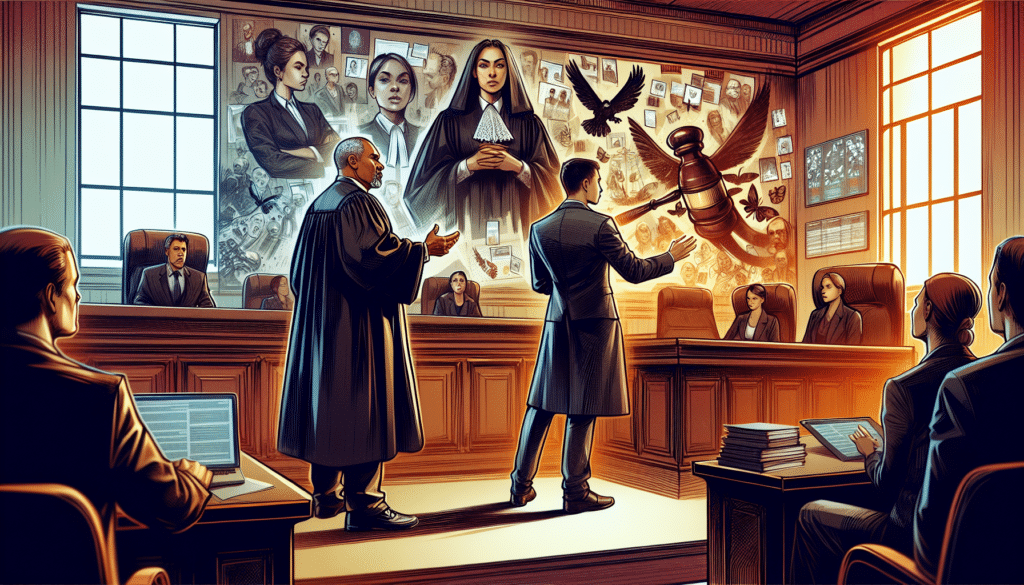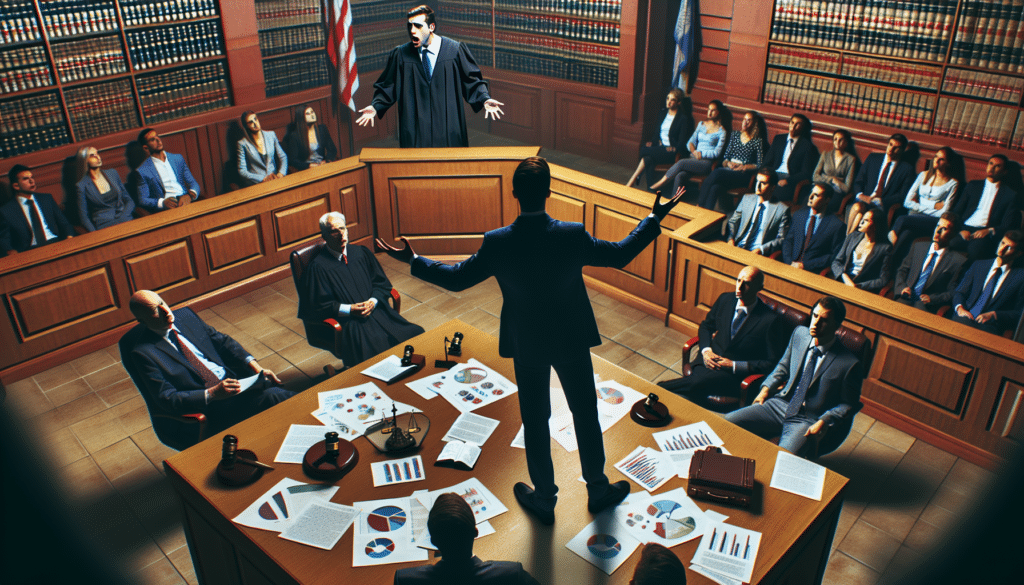Facing a speeding ticket and want to fight it? This article will guide you on how to appeal a speeding ticket, from understanding the legal grounds to presenting your case in court. Follow these steps to improve your chances of a successful appeal.
Key Takeaways
Understand the legal grounds for appeal, including errors on the ticket that can lead to dismissal.
Gather strong evidence like dashcam footage and witness statements, and organize it well for court.
File your appeal accurately and on time, and consider legal representation for a better chance of success.
Understand the Legal Grounds for Appeal

To appeal a speeding ticket, start by understanding the legal grounds for it. Knowledge of specific reasons that can invalidate a ticket is crucial. For instance, a ticket can be dismissed if the issuing officer recorded incorrect information, such as the wrong vehicle details. This might seem like a small error, but it can significantly impact your case.
Another common ground for appeal is errors in the ticket, such as a misrepresentation of the speed zone. It’s a common misconception that minor errors on the ticket will automatically invalidate it. However, while not every mistake will lead to dismissal, significant errors can serve as a strong foundation for your appeal. Understanding these nuances can help you build a more compelling case.
These legal grounds help identify potential weaknesses in the citation, equipping you to challenge the ticket effectively in court.
Gather and Present Evidence
After understanding the grounds for your appeal, the next step is to gather and present evidence. Solid evidence is crucial for a successful appeal. Dashcam footage can provide crucial visual evidence supporting your account of events. This type of evidence can be compelling in traffic court.
Witness statements can also serve as powerful corroboration of your version of events. Whether it’s a passenger in your car or a bystander, having someone else attest to your account can make a significant difference. Additionally, GPS data can offer verifiable information about your motor vehicles’ speed and location at the time of the alleged violation. This type of data is often difficult to dispute and can be a key element in your defense.
Not documenting and presenting all relevant circumstances can hinder your appeal. Organize all your evidence and ensure it’s ready for court. The more thorough and comprehensive your evidence, the stronger your case will be.
File Your Appeal Correctly
Filing your appeal correctly is as important as gathering evidence. Missing the filing deadline can result in automatic dismissal. It’s crucial to be aware of the specific timelines and procedures for your jurisdiction. If you miss a court deadline for a valid reason, you may request the cancellation of a civil assessment related to the ticket.
You can also ask the court to reduce the fine if you cannot afford to pay it. This step can be particularly helpful if the financial burden of the ticket is significant. The appeal form should be filled out accurately and submitted on time to ensure that your case is heard. Remember, the details matter, and any oversight can jeopardize your appeal.
Taking these steps seriously and ensuring all documentation is correctly filed sets a solid foundation for your case. Proper filing is crucial for having your appeal considered.
Prepare for Your Court Hearing

Preparing for your court hearing is where the real work begins. Compile all available evidence before the court date to ensure a strong case. This includes photographic evidence of the location, which can help illustrate any conditions that may have contributed to the incident.
Organizing all relevant documentation, including your ticket and evidence, is crucial for a successful court appearance. Presenting documents, such as photographs and witness statements, in an orderly manner can significantly strengthen your case.
Understanding your rights and the specific traffic laws applicable to your case is essential for effective representation. Formulate a clear and organized argument to enhance your chances of a favorable outcome. Neglecting to practice your argument can lead to a poor presentation of your case.
In many courts, being well-prepared can make all the difference. The judge will appreciate your effort, showing that you take the process seriously. This preparation can increase the likelihood of a positive outcome.
Argue Your Case Effectively

When arguing your case, clarity and confidence are key. Contest the officer’s judgment, especially if based on their subjective opinion, like unsafe lane changes. Challenge the evidence presented by the officer, particularly for clear-cut violations where you can argue visibility issues.
Use a claim of ‘mistake of fact’ if you can show your violation was due to circumstances beyond your control. For example, if you were speeding to avoid a dangerous driver, argue that your actions were justified. Highlighting that your actions were necessary to prevent harm can significantly strengthen your defense.
Presenting evidence and a well-structured argument can sway the court in your favor. Clear articulation of your defense and providing proof can significantly impact the outcome of your appeal.
Consider Legal Representation
Legal representation can be a game-changer in your appeal process. An experienced attorney can provide legal advice and a strategy tailored to your specific traffic case. Many traffic ticket lawyers offer free consultations to discuss your case.
Hiring an attorney can be particularly beneficial if facing severe penalties such as driver’s license suspension or high court costs. They can navigate the complexities of traffic laws and increase your chances of a favorable outcome.
While it may incur a cost, the benefits of legal representation often outweigh the expense.
Potential Outcomes of an Appeal

Understanding the potential outcomes of an appeal is essential. Successfully pleading not guilty can lead to dismissal of charges if the prosecution fails to prove guilt beyond a reasonable doubt. If the court rules in favor of the defendant, there may be no fines or legal consequences, except in cases of pleading guilty.
Legal representation can play a crucial role in persuading a judge to dismiss a traffic citation, potentially saving you money and maintaining your driving record. However, be prepared for all possible outcomes, including the court upholding the ticket while fighting traffic tickets and facing a traffic violation and traffic violations.
Knowing what to expect can help you prepare mentally and strategically for your court appearance. Whether you win or lose, understanding potential outcomes can help you plan your next steps.
What to Do If You Lose the Appeal
If your appeal is unsuccessful, you must either pay the fine or consider attending traffic school if eligible. Paying the ticket usually involves submitting the fine by a specified deadline to avoid further penalties.
Traffic school may be an alternative if the court allows it, potentially leading to a dismissal of the ticket or points reduction. Further appeals are possible but involve a higher court reviewing the previous decision and can only address legal errors made in the initial trial.
Knowing these options can help you make an informed decision on your next steps if the initial appeal does not go in your favor.
Common Mistakes to Avoid When Appealing
Avoiding common mistakes when appealing can improve your chances of success. Defenses like claiming ignorance of traffic laws or seeking loopholes are generally ineffective in court.
Ignoring the ticket can lead to a guilty decision in absentia, resulting in additional fines and penalties. Take the process seriously and avoid these pitfalls to maximize your chances of a successful appeal.
Summary
Summarizing the key points of the blog post, it’s clear that appealing a speeding ticket involves understanding legal grounds, gathering evidence, filing correctly, preparing effectively, and possibly seeking legal help. Each step is crucial for increasing your chances of a successful appeal.
Remember, the effort you put into your appeal can save you money, protect your driving record, and provide a sense of justice. Stay informed, be prepared, and take the necessary steps to fight your speeding ticket successfully.
Frequently Asked Questions
What are the common grounds for appealing a speeding ticket?
You can appeal a speeding ticket if there’s incorrect info on it, if the speed zone was misrepresented, or if the officer made significant errors. It’s worth checking these details before you decide to pay up!
What types of evidence can support my appeal?
To strengthen your appeal, gather dashcam footage, witness statements, and GPS data that show your vehicle’s speed and location during the incident. These pieces of evidence can make a compelling case for your argument.
What should I do if I miss the deadline to file my appeal?
If you miss your appeal deadline, you can still request a cancellation of any civil assessment tied to your ticket, especially if there’s a valid reason behind it. It’s worth reaching out to see what options you have!
Is it beneficial to hire a lawyer for my traffic ticket appeal?
Absolutely, hiring a lawyer for your traffic ticket appeal can be very beneficial, particularly if you’re facing serious penalties. They can offer personalized legal advice and strategies to help you navigate the process effectively.
What are my options if my appeal is unsuccessful?
If your appeal is unsuccessful, you can either pay the fine or, if you’re eligible, attend traffic school. You also have the option to appeal to a higher court.




